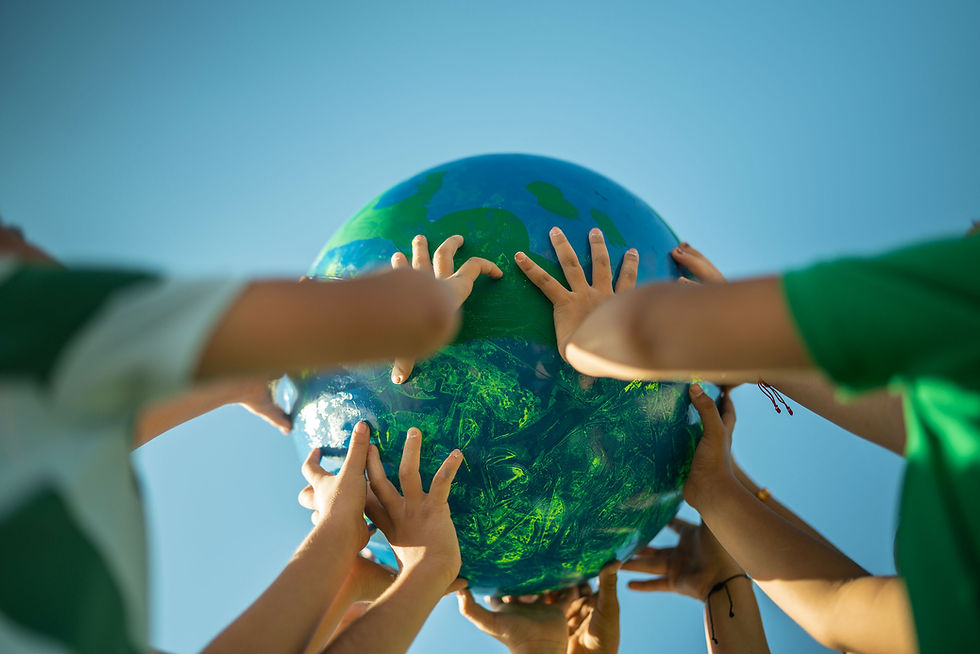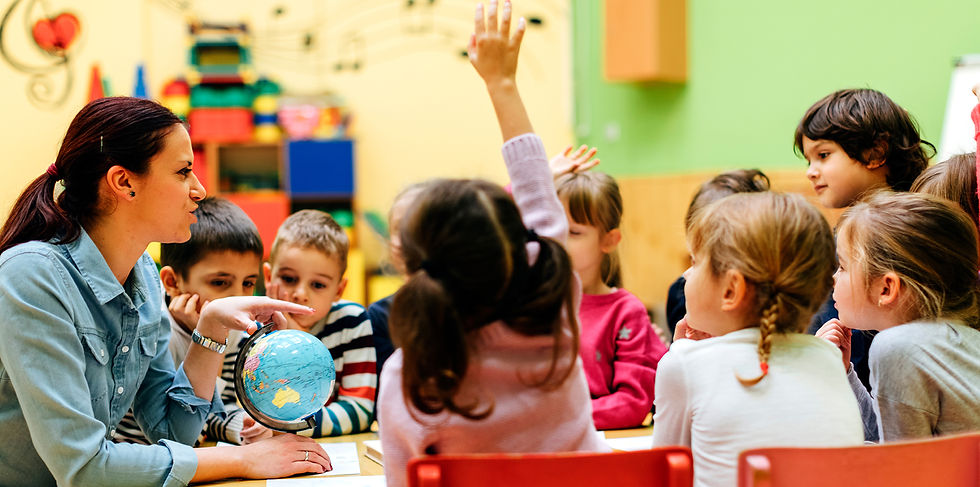Why Climate Education is Critical
- Sophie Wassef

- Feb 9, 2025
- 4 min read
Updated: Jun 22, 2025
A look into the importance and impact of learning about our changing world through climate education
Team meetings. Emails. Hundreds of tabs. Rinse and repeat.
Over the past couple of months, these actions have become a central part of my life as I work on developing a climate curriculum for my school district. This climate curriculum will be used to help educate and empower local students on the magnitude of climate change. “Why?”, you may ask. Well, that was one of the first questions I asked myself when I started this initiative. The answer to this is the reason I continue my work regardless of the obstacles and challenges I face.

To understand the importance of climate education we must reflect on the skills and attitudes we want students to gain through their education and how existing systems fail to reach these standards. Today I will share with you my findings and perspectives as to why every youth deserves to have climate science built into their curriculum.
Offers answers to difficult questions
The immediacy and devastation of climate change impacts leave many young people feeling confused and anxious. In recent years, my own community has faced many wildfires exacerbated by climate change. The challenges and change brought by these wildfires left me with so many questions, but I didn’t have the tools or resources to get answers. During this turbulent time, greater access to informational resources about what was happening and how further wildfires could be prevented would have eased my anxiety and sprung me to action faster.
Without providing youth with direct answers and access to information on what is happening to their communities on a local level, they will continue to feel anxious and powerless. This can be avoided if governments take serious efforts towards training educators on the “why's” and “how's” of climate change and take extra time for lessons on climate change impacts observed by their local communities.
Empowers youth to use their voices to enter discussions regarding climate change
As a young person, I know what it’s like to feel like you don’t have a seat at the table. Young people are often left out of important discussions, even those that seemingly determine their future. Fortunately, more young people are speaking up about climate change and challenging their leaders to do better. This bravery, however, would not be possible without exposure to and education about our changing climate (and not all students have the privilege of receiving it).

Receiving the basic science behind climate change gives all students a foundational level of understanding, and select students may go beyond and pursue their own research and activism. If climate change is taught in the context of both science and social impact, students can take what they learn from class discussions and use it to engage in conversations outside of school. From personal experience, the process of developing the climate curriculum I mentioned earlier has increased my confidence in climate change discussions tenfold! Re-establishing my understanding of the basics of climate science and having meaningful talks with my team has given me more opportunities to develop my opinions on certain climate issues and think about the best ways to communicate these thoughts.
Encourages change at a grassroots level
Once students are able to express their beliefs and hopes regarding climate change, they are also able to put their ideas into action and bring change. Climate change is a daunting problem, one that many adults feel is out of their realm of control. The older we get, the harder it is to break habits and adapt our lifestyles to fit the sustainable practices advertised as actions meant to combat climate change. Fortunately, once youth understand what is going on, they can take the necessary steps to share what they know and bring change to their local communities.
"In the end we will conserve only what we love, we will love only what we understand, and we will understand only what we are taught" -Babe Dioum
Students who are educated about climate change can share what they know with their friends, family, and greater community. This can spread the message of climate action much farther than other means like lengthy government reports or vague social campaigns. Youth have the ability to explain the importance of protecting our climate in a way that is relevant to their respective communities. This is an invaluable tool when approaching an issue as systemic and broad as climate change. In this way, through climate education, youth can serve as the vessels for behavioral change in their communities.
Gives young people hope for the future
This brings up the challenge of climate anxiety. A recent Lancet study clearly outlines the growing number of youth across the globe who fear for their future due to climate change. It’s obvious: our youth are afraid, paralyzed by the possibilities of climate change. The good news: there are solutions. If we want to give future generations hope for their own futures, we first need to help students understand the principles of climate science and then educate them on the vast solutions for helping climate change. It is especially critical that climate education focus on the existing solutions for addressing climate change. Education is always the first step towards change, and even a marginal increase in climate literacy among our current generation can have wide-ranging impacts on how they see their futures.

It’s pretty clear: a generation of climate-literate students means a generation of people who have the tools to take on global challenges and the confidence to speak up against outdated systems and ideologies that perpetuate the root causes of climate change. By introducing foundational climate science topics in elementary education, youth will be equipped to enter a world that is vastly different than their parents and be ready to collaborate, innovate, and discover to form solutions for a better world.
Thank you for taking the time to read this blog! If you enjoyed it, please share it with your friends or anyone else who might enjoy it.
-- Sophie Wassef
Sources:



Comments